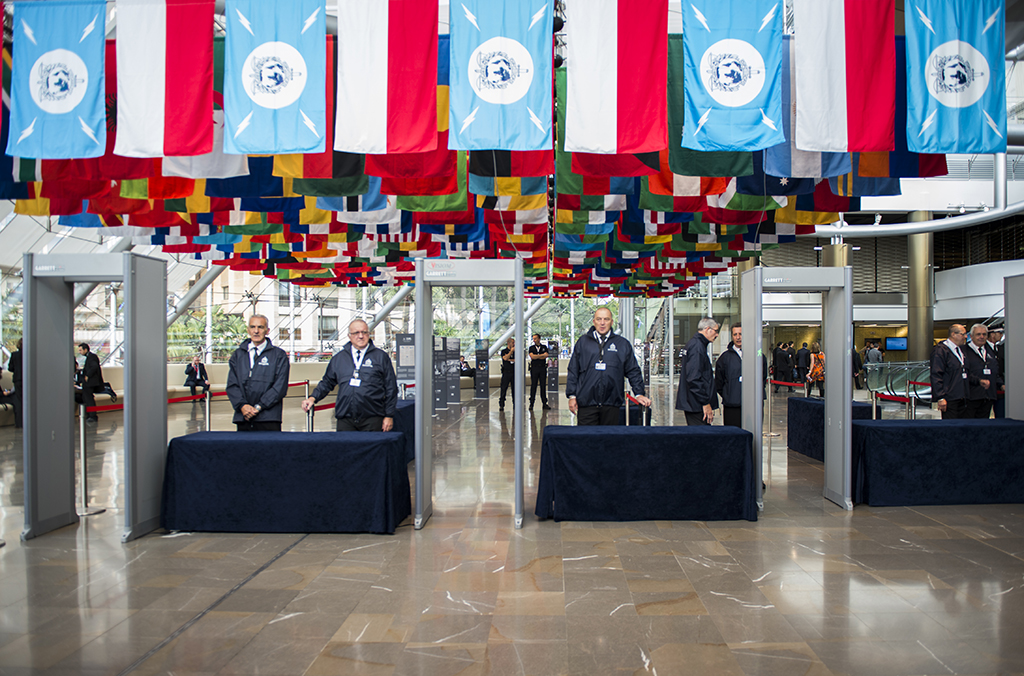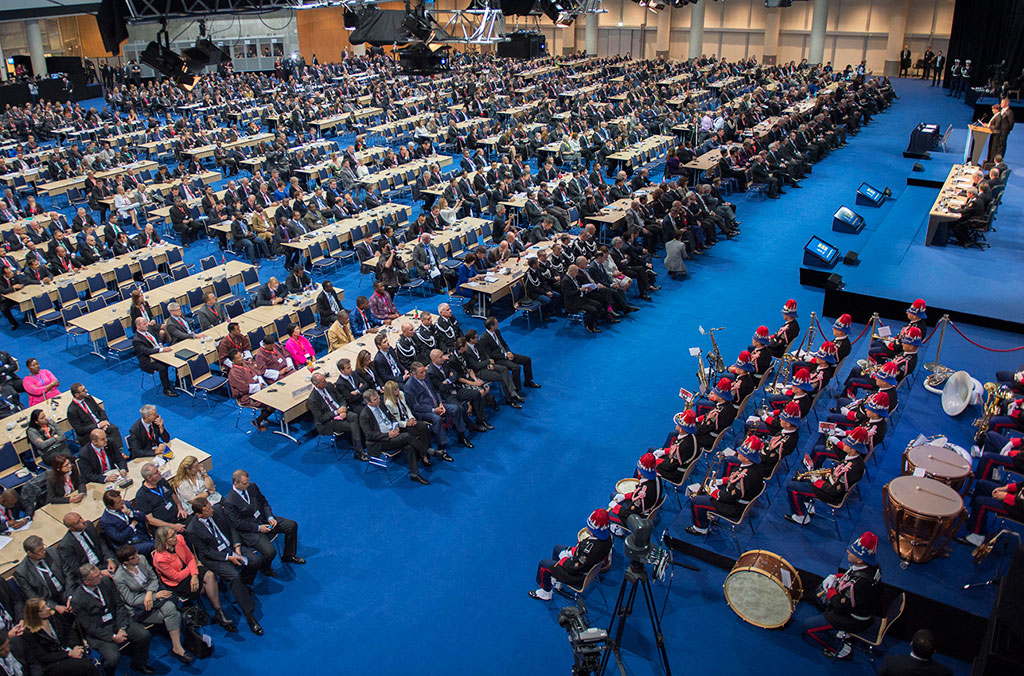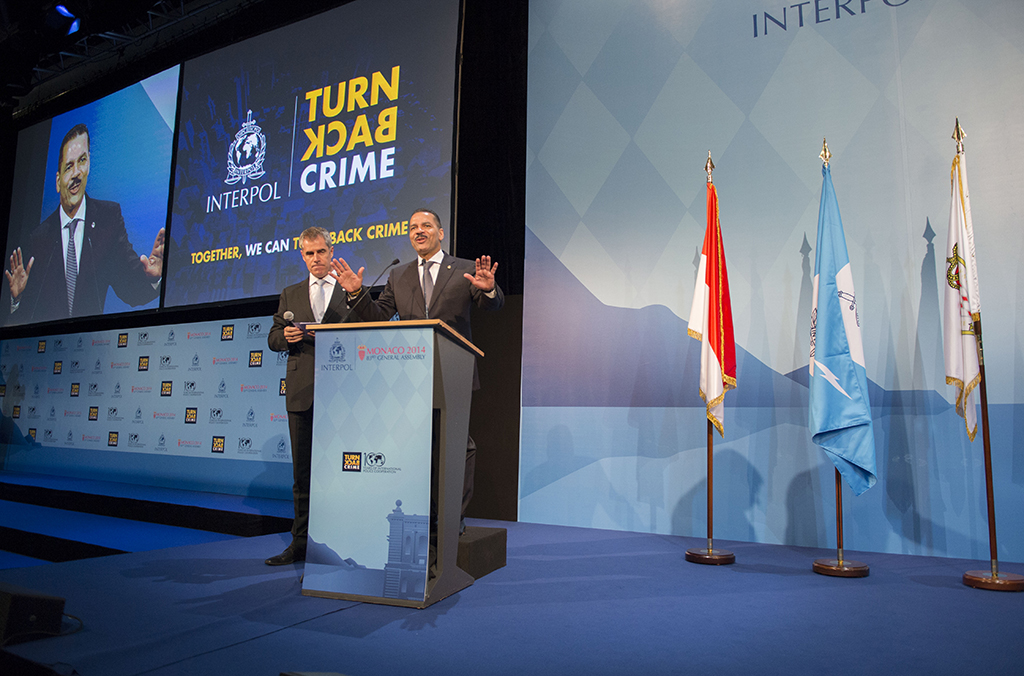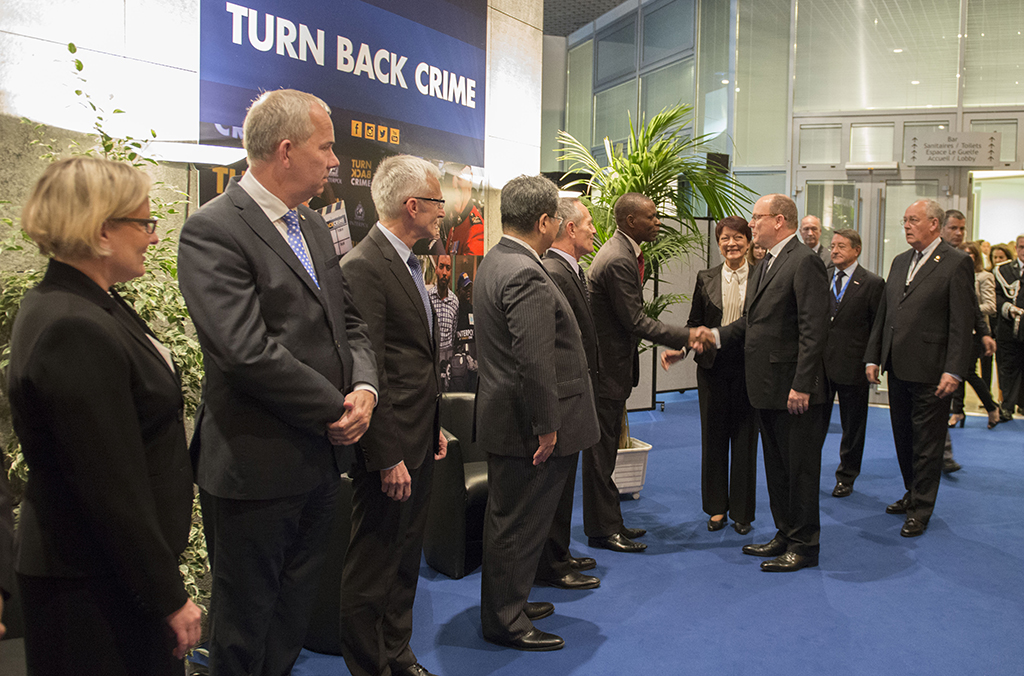MONTE CARLO, Monaco – The INTERPOL General Assembly has opened with a gathering of Justice, Home Affairs and Security Ministers from some 100 countries which will examine the evolution of international police cooperation and chart the course for facing the crime challenges of the future.
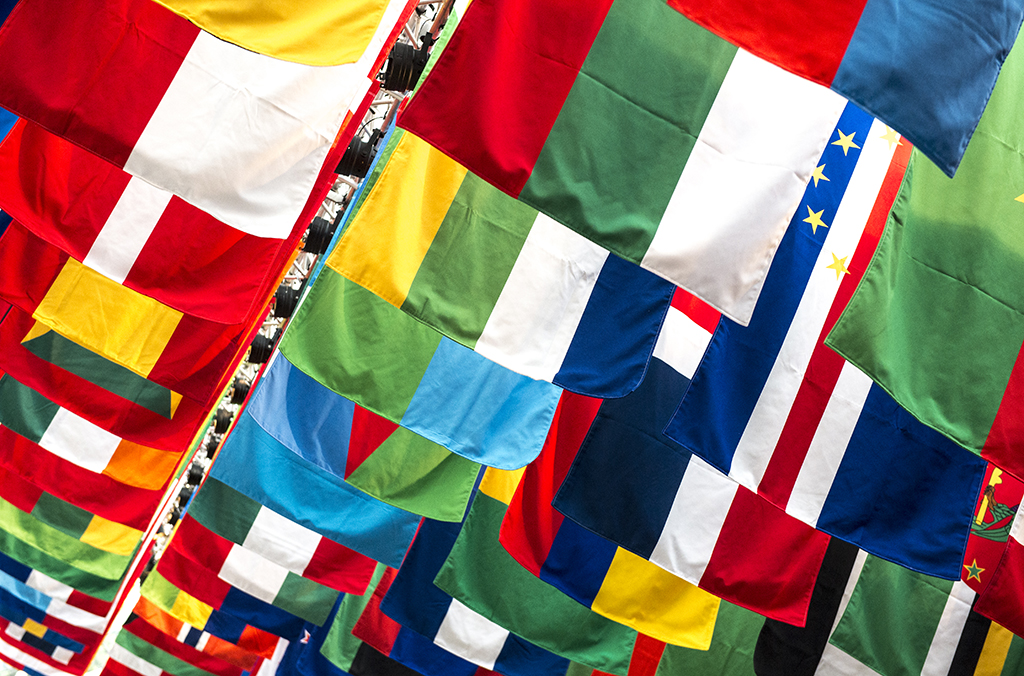
Delegates from 166 countries are attending the 83rd General Assembly.
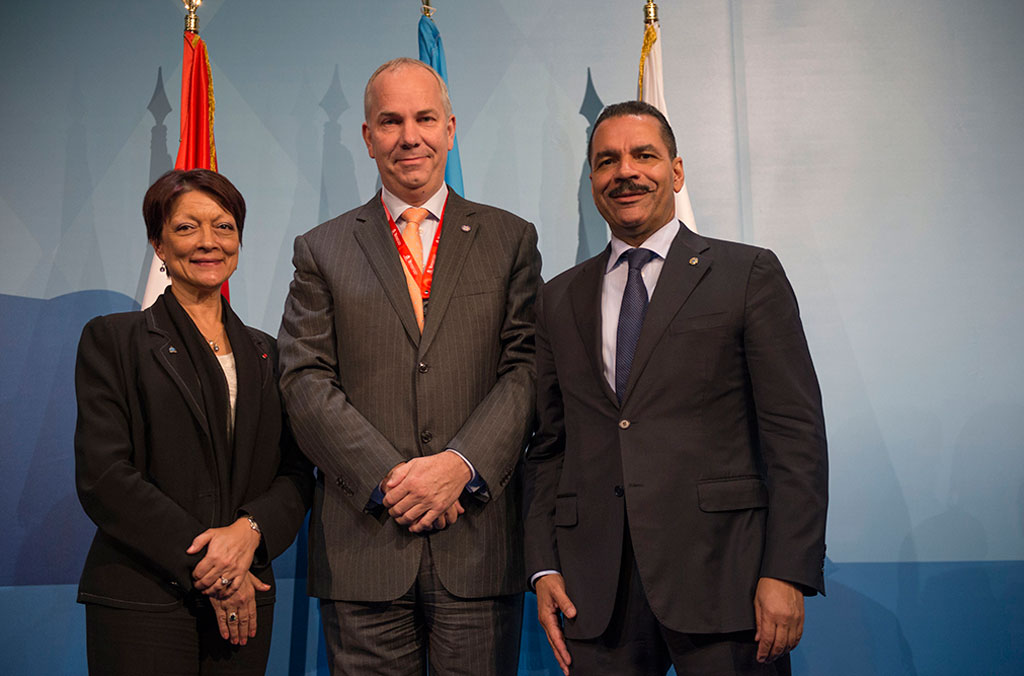
President Ballestrazzi and Secretary General Noble with Executive Committee member Pieter Jaap Aalbersberg (centre).
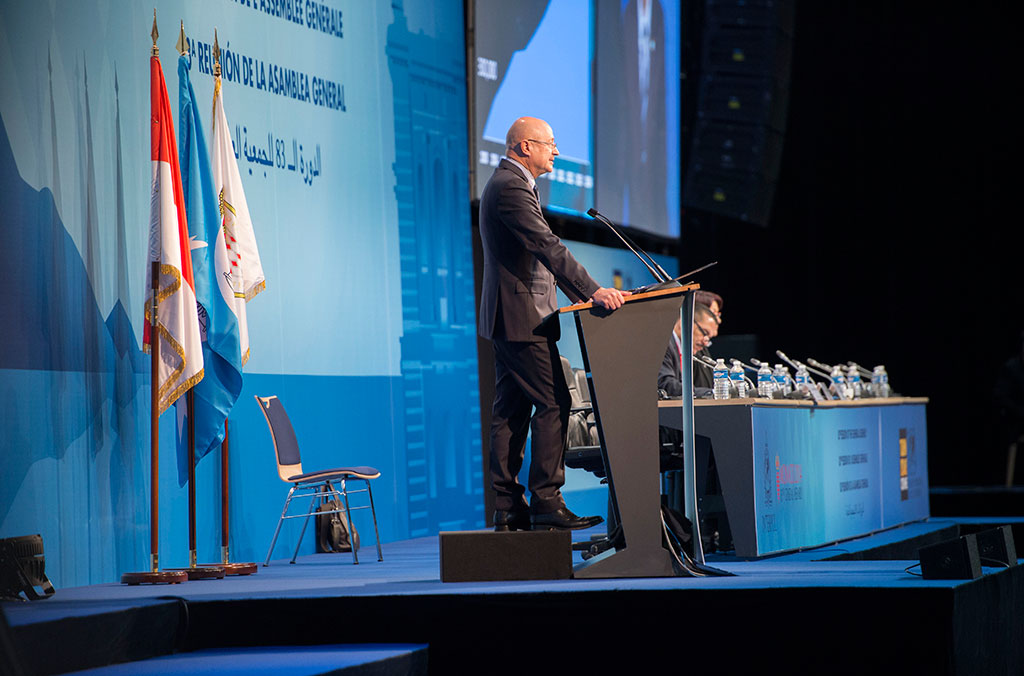
Jean-Michel Louboutin, INTERPOL’s Executive Director for Police Services, addresses the General Assembly.
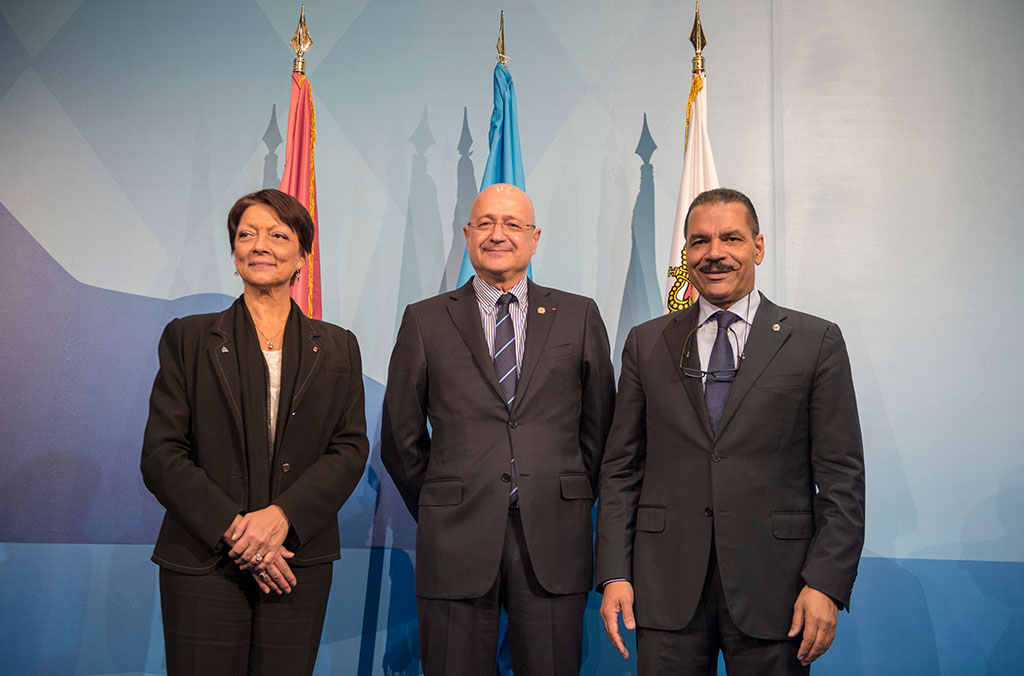
President Ballestrazzi and Secretary General Noble with Jean-Michel Louboutin (centre), who will step down as INTERPOL’s Executive Director for Police Services this month.

INTERPOL President Mireille Ballestrazzi, chairing the 83rd Session of the General Assembly in Monaco.
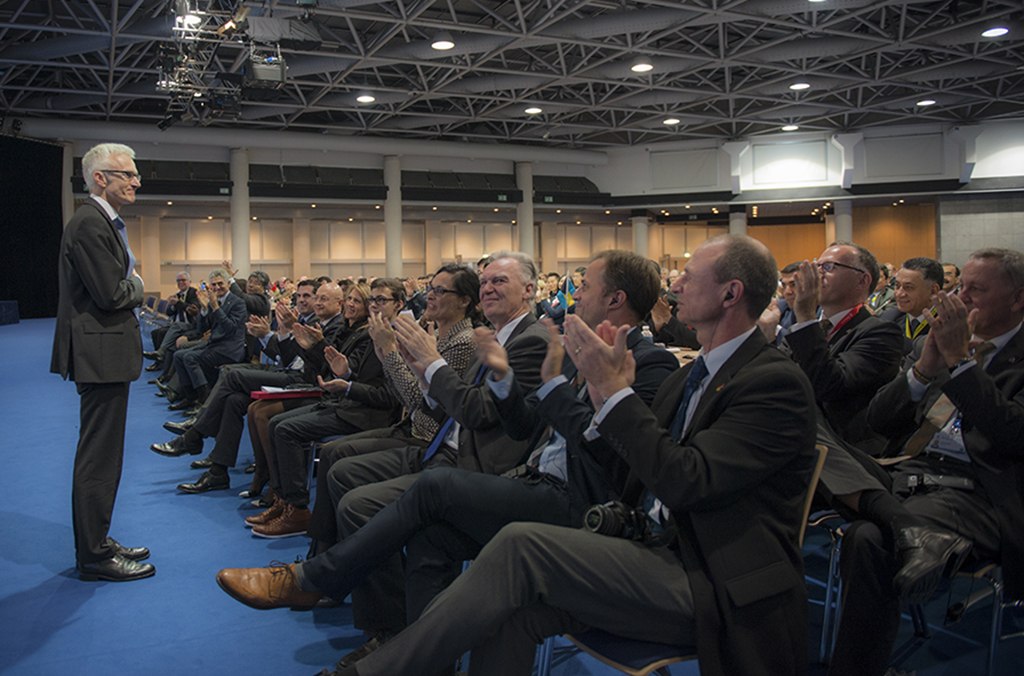
INTERPOL’s Secretary General is elected by the General Assembly for a period of five years and may be re-elected.
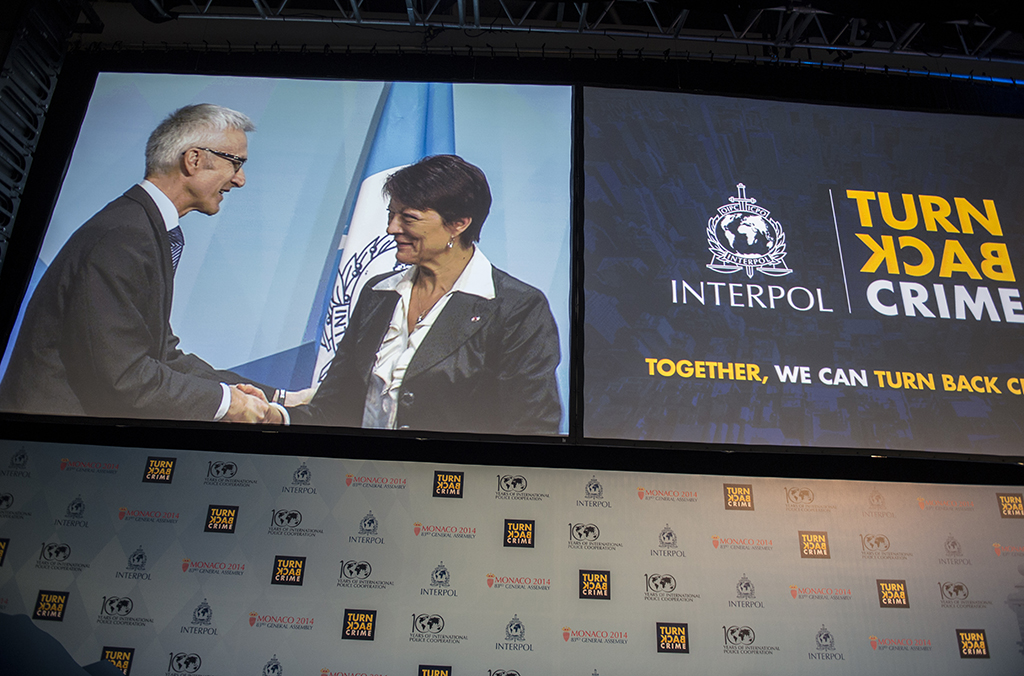
INTERPOL President Mireille Ballestrazzi congratulated Mr Stock on his election as Secretary General.
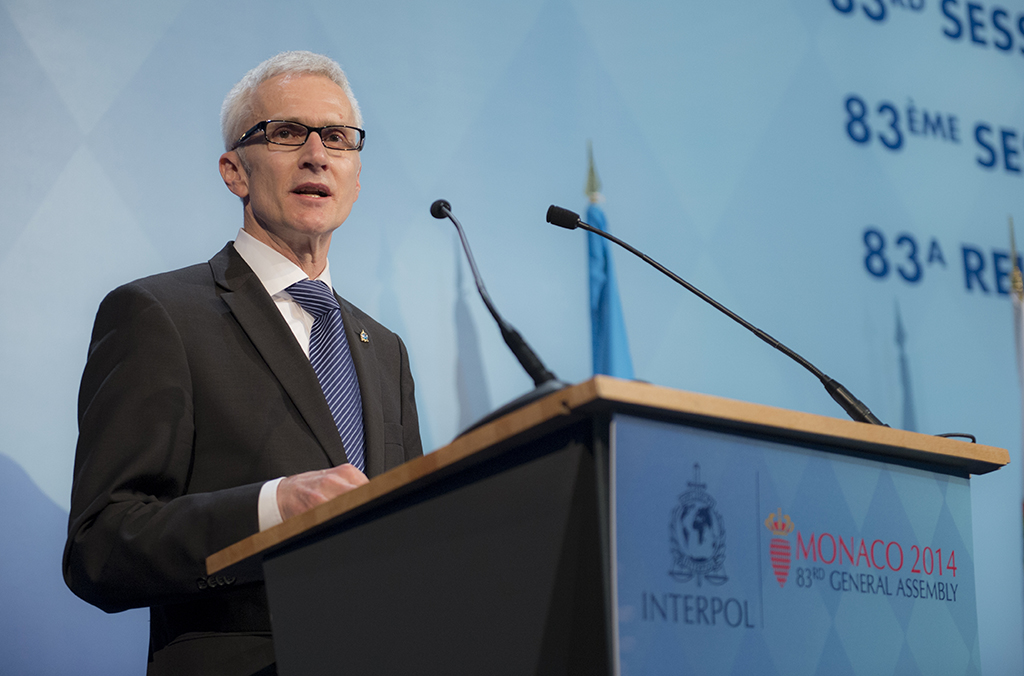
Newly-elected Secretary General Jürgen Stock outlined his vision for the future of INTERPOL based on four pillars: core business, innovation, partnership and governance.
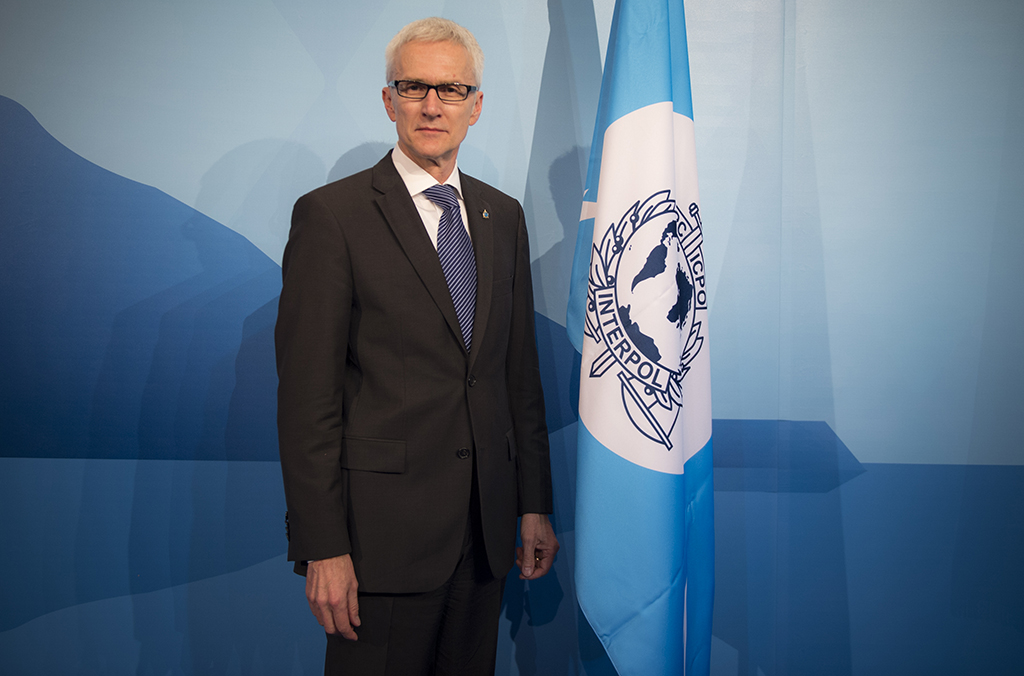
Jürgen Stock of Germany was unanimously elected as the new Secretary General of INTERPOL by the 83rd session of the General Assembly.
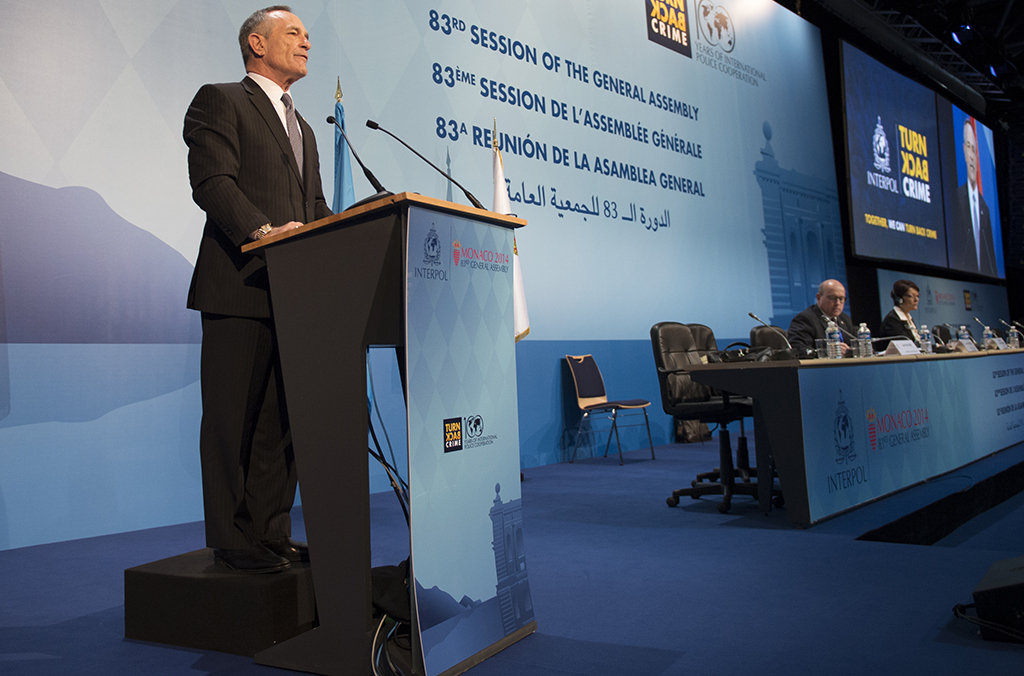
Alan Bersin, INTERPOL’s Vice President for the Americas, who chaired the working group responsible for selecting the new Secretary General.
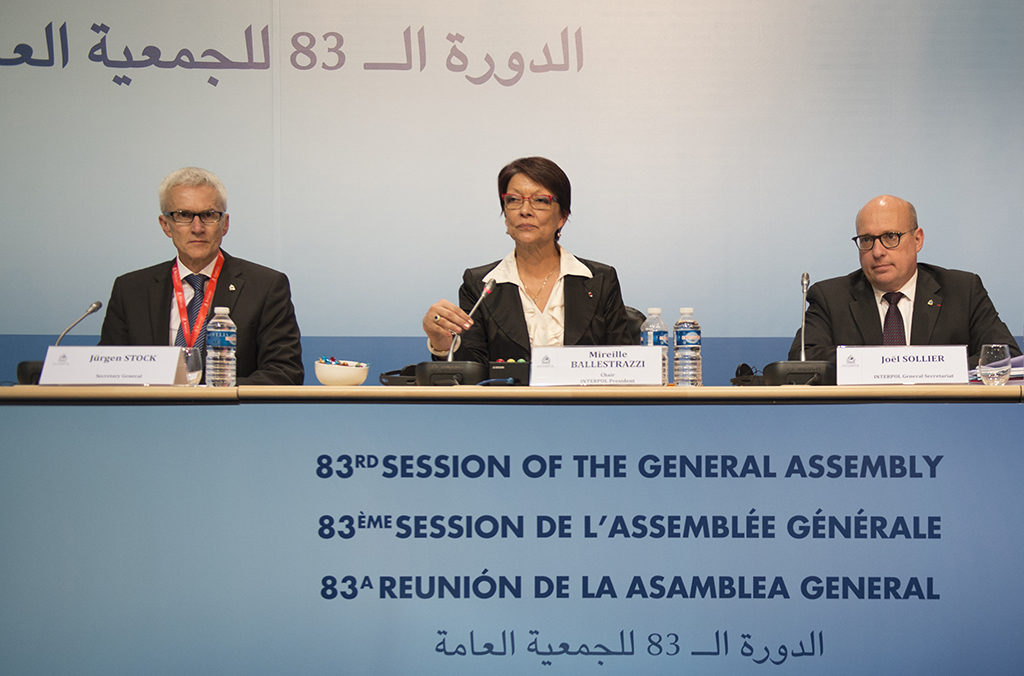
Newly-elected Secretary General Jürgen Stock, President Mireille Ballestrazzi and General Counsel Joel Sollier.
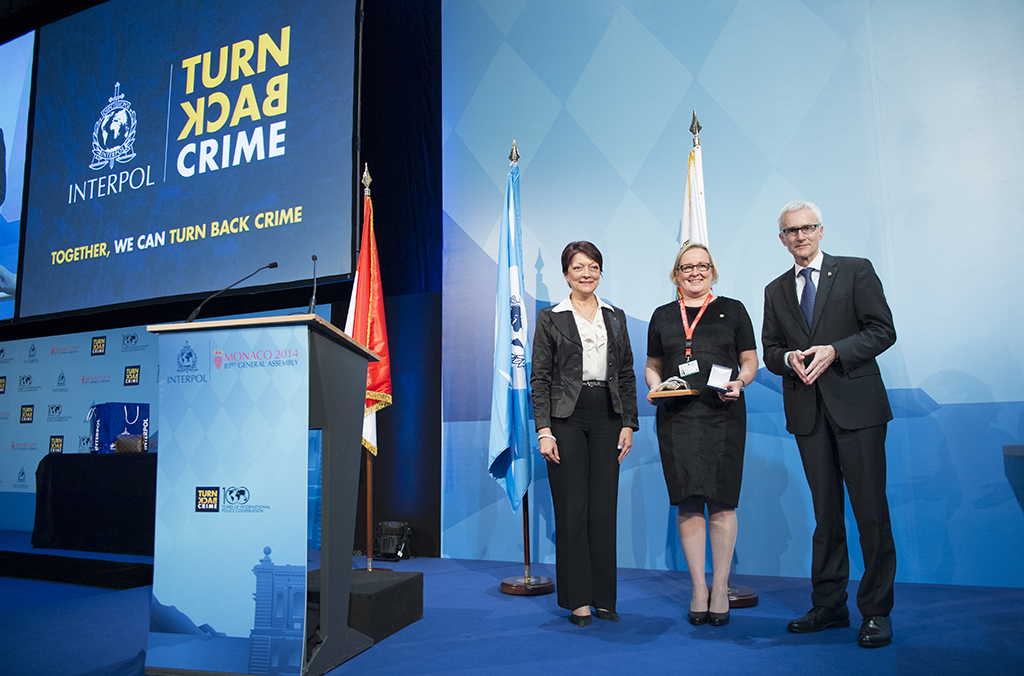
Outgoing member of the Executive Committee, Sanna Palo of Finland (centre).
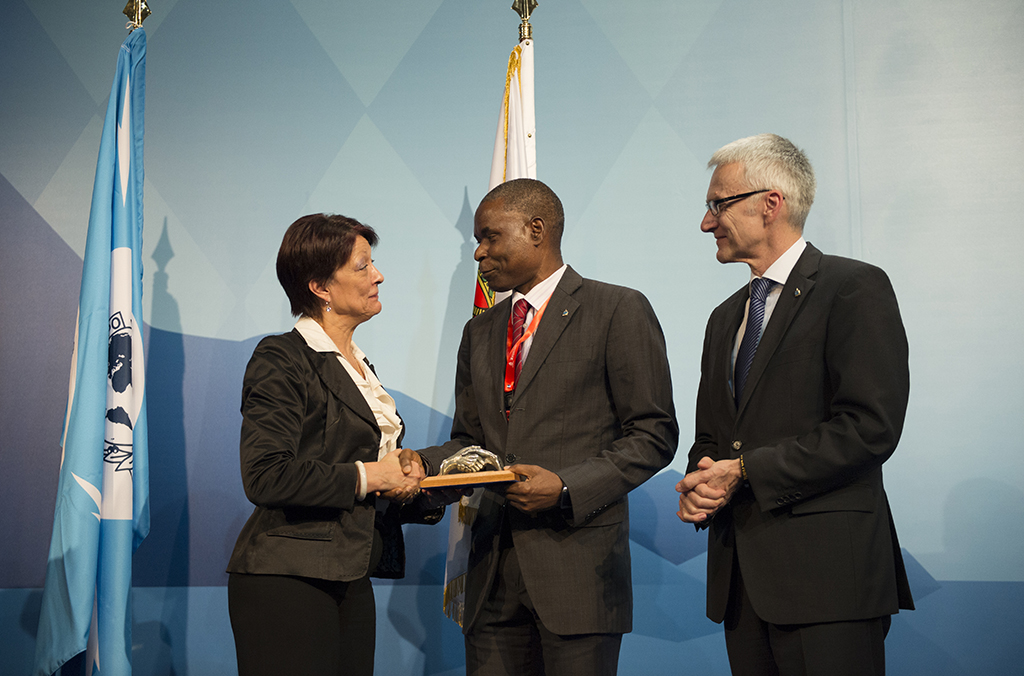
Outgoing Vice President of the Executive Committee Adamu Abubakar Mohammed of Nigeria (centre).
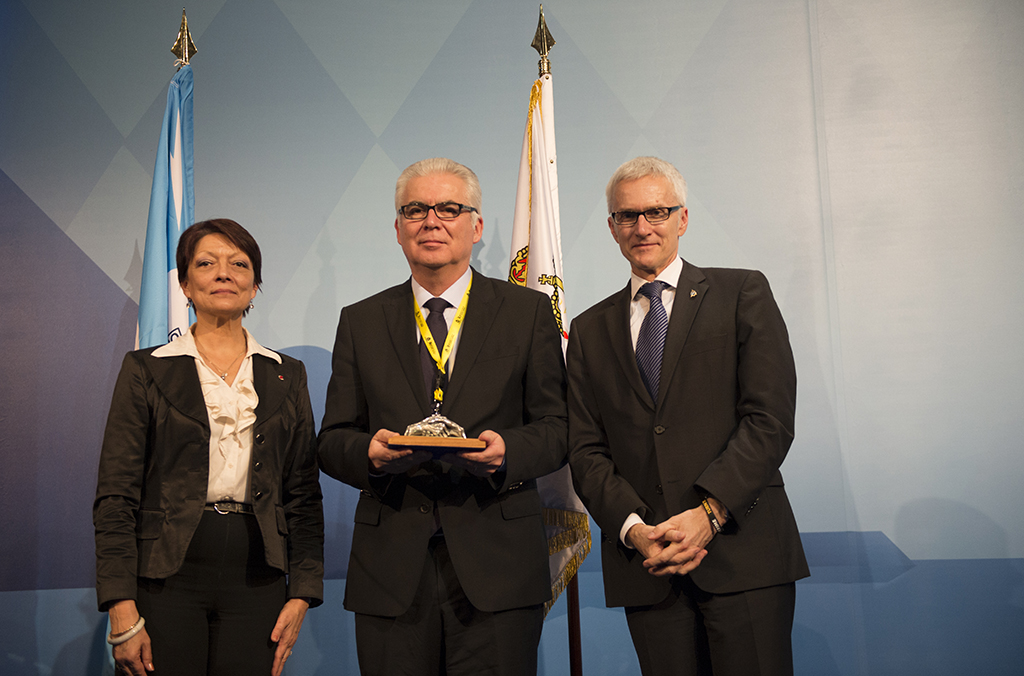
Outgoing member of the Executive Committee, Marcos Vasquez Meza of Chile (centre).
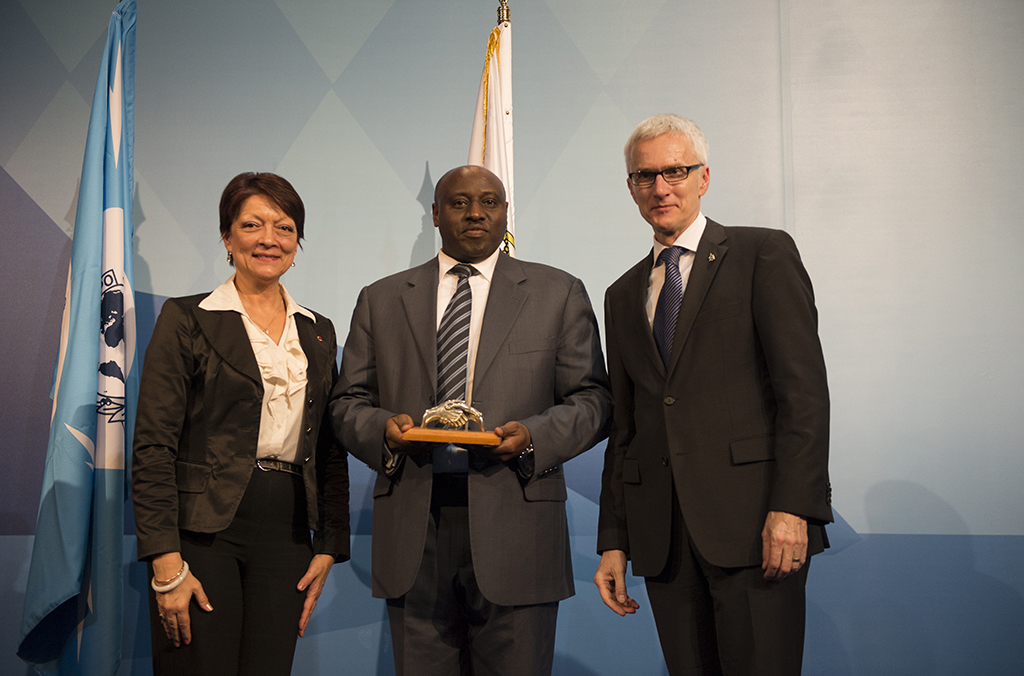
Outgoing member of the Executive Committee, Emmanuel Gasana of Rwanda (centre)..
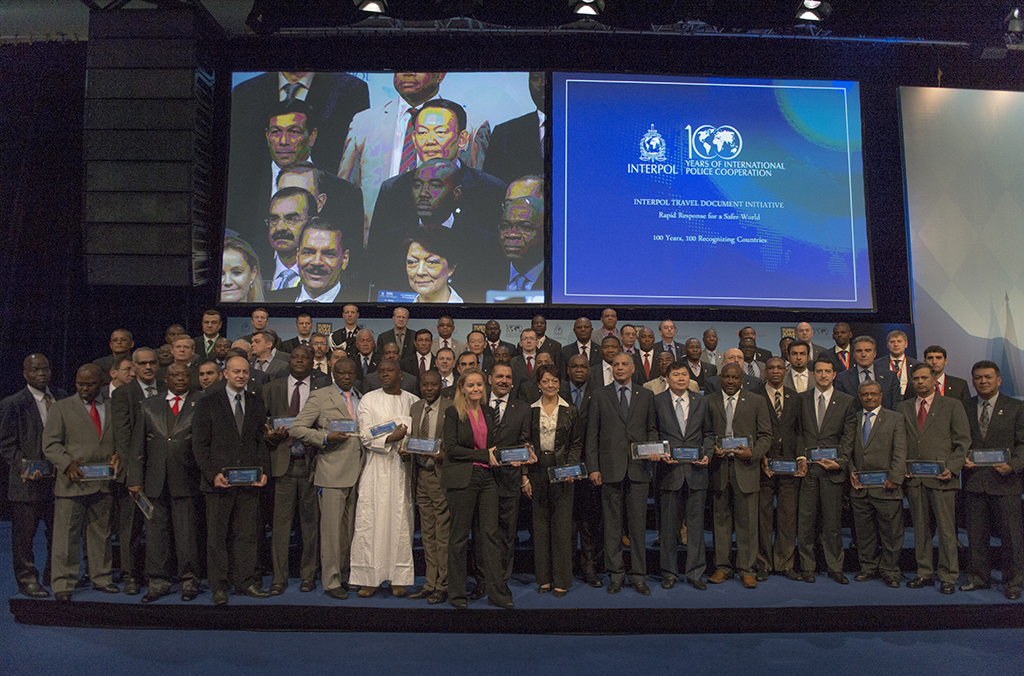
A ceremony was held for all the countries who have recognized the INTERPOL Travel Document.
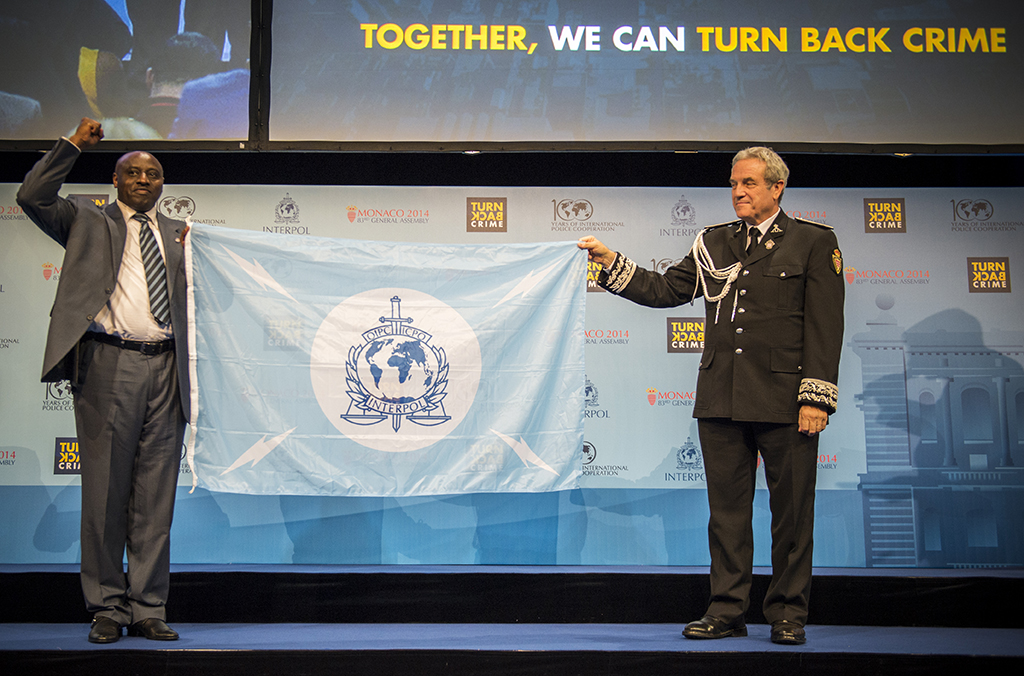
Monaco symbolically hands the INTERPOL flag to Rwanda, who will host the 84th General Assembly in 2015.
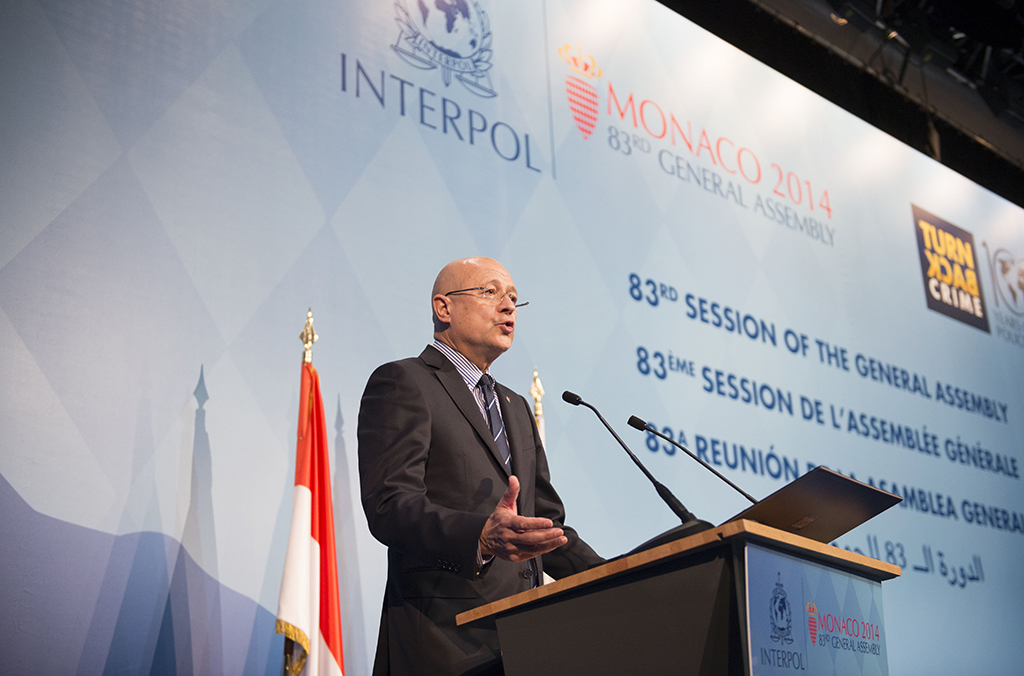
Jean-Michel Louboutin
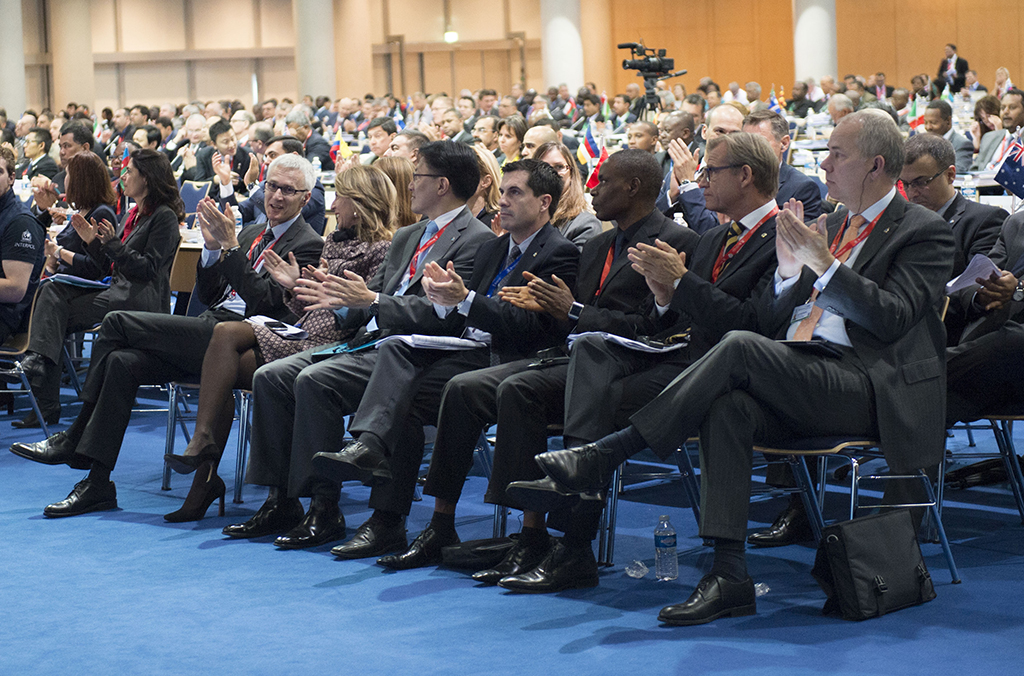
Delegates from 166 countries are attending the 83rd General Assembly.
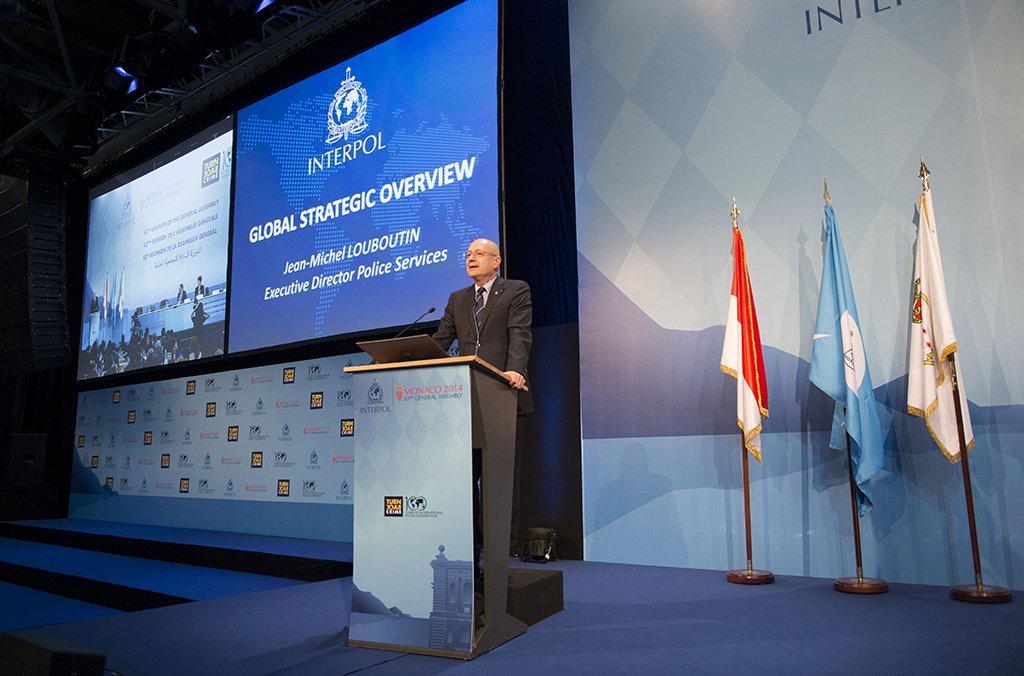
Jean-Michel Louboutin, Executive Director for Police Services, gave the Assembly a strategic overview of INTERPOL’s activities this year.
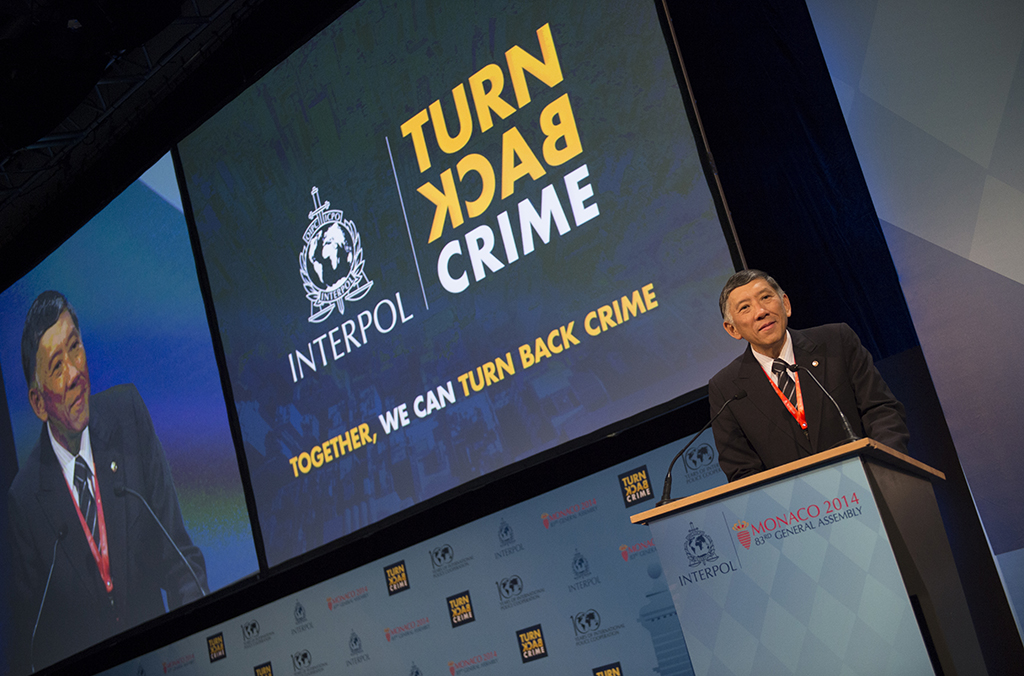
Former INTERPOL President Khoo Boon Hui paid tribute to the achievements of outgoing Secretary General Ronald K. Noble.
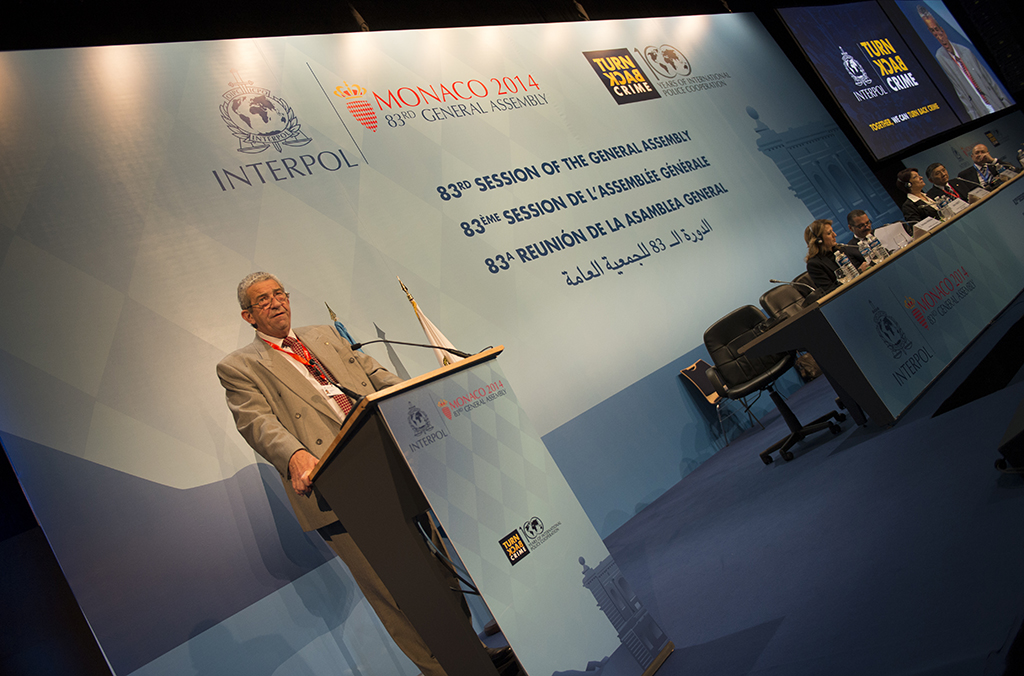
John Abbott, a former member of the Executive Committee, paid tribute to the achievements of outgoing Secretary General Ronald K. Noble.
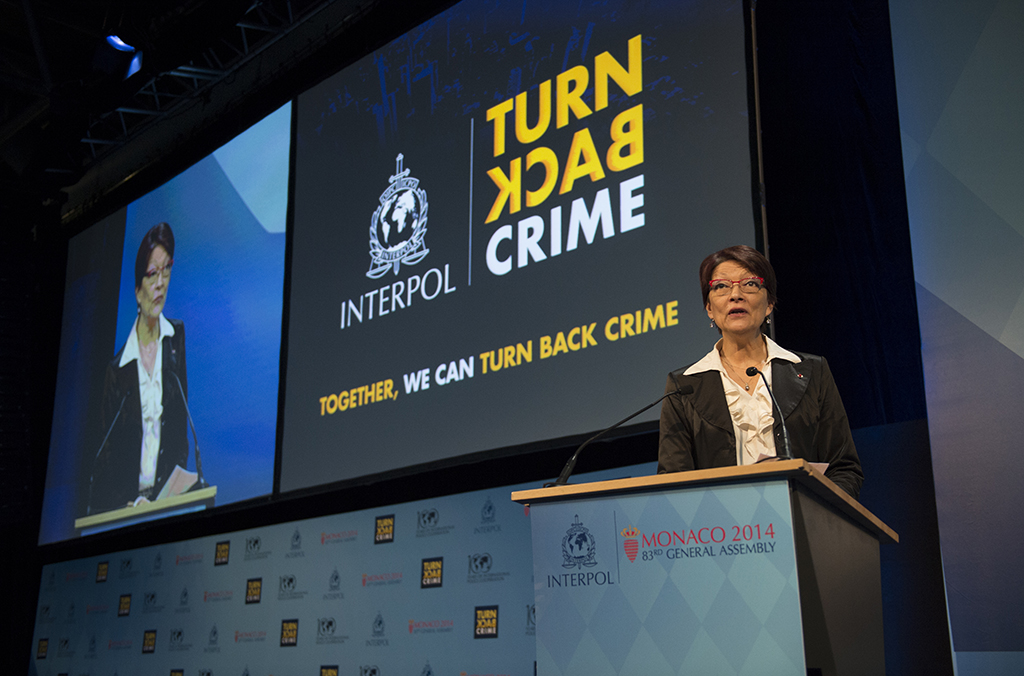
President Mireille Ballestrazzi paid tribute to the achievements of outgoing Secretary General Ronald K. Noble.
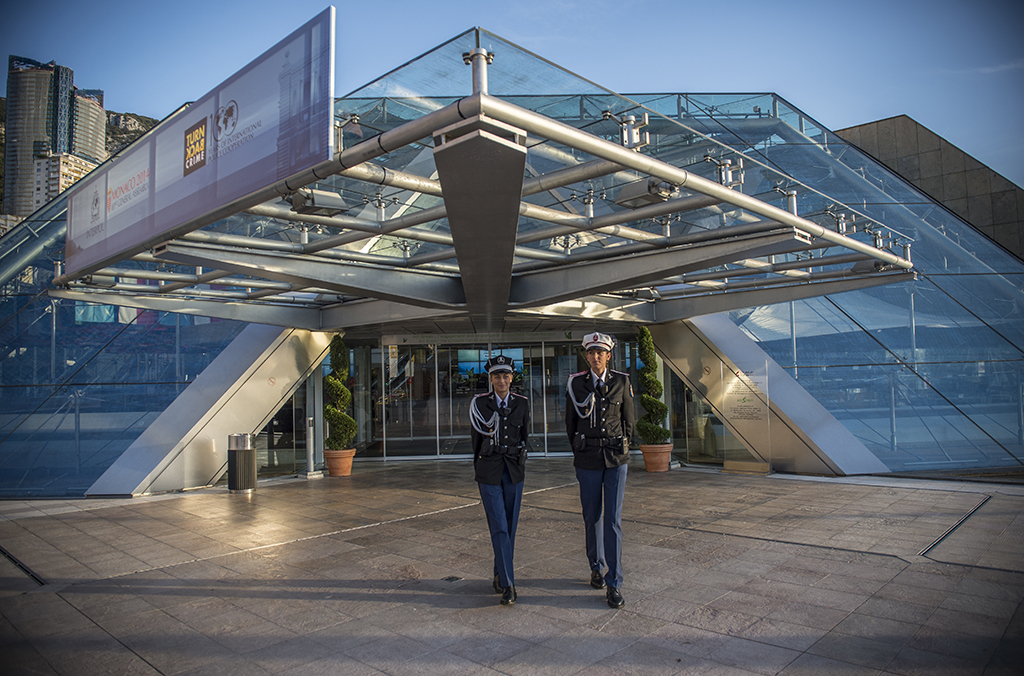
The 83rd General Assembly took place in the Grimaldi Forum in Monaco.

Ronald K. Noble delivered his final address to the General Assembly before stepping down after 14 years as Secretary General of INTERPOL.
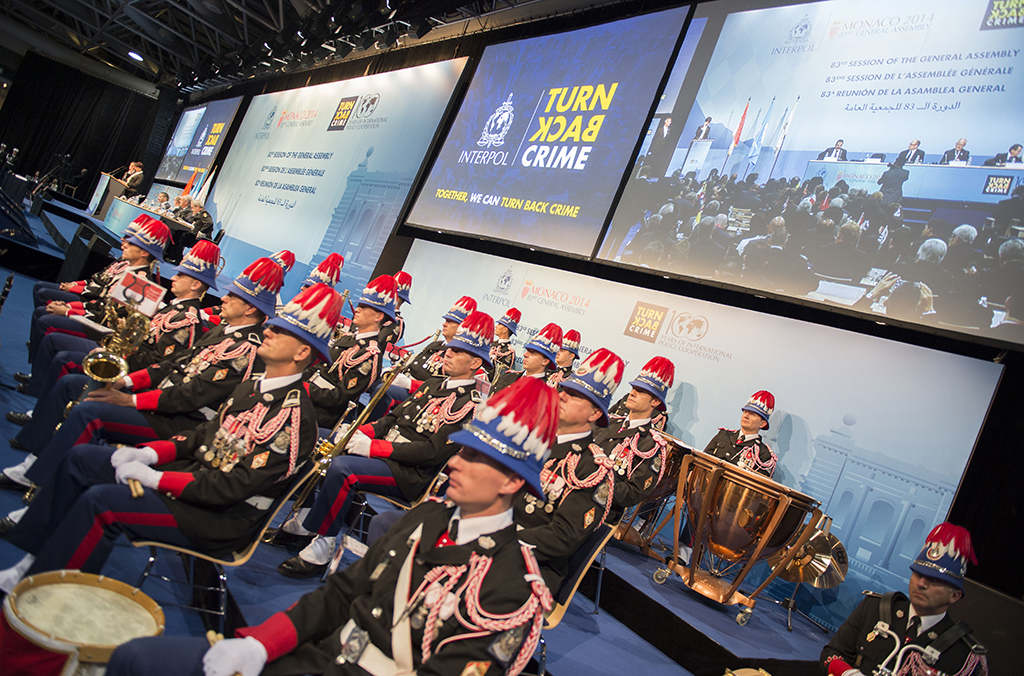
This historic Assembly marks 100 years since the idea of international police cooperation was born with the first International Criminal Police Congress in Monaco in 1914.
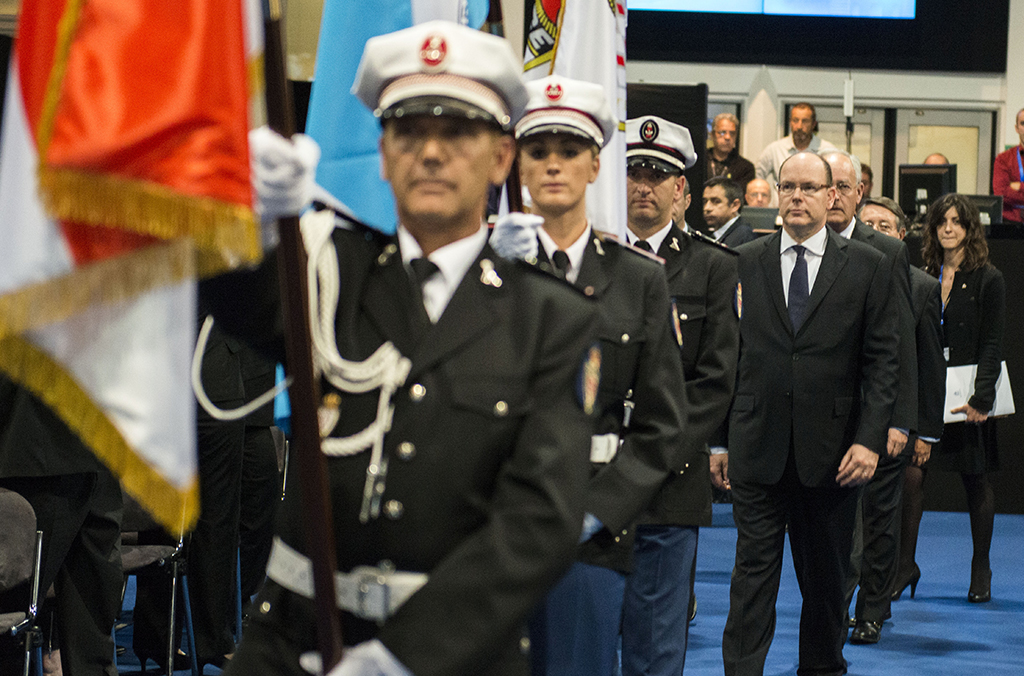
The 83rd INTERPOL General Assembly is taking place in Monaco, 100 years after the Principality hosted the first International Criminal Police Congress in 1914.
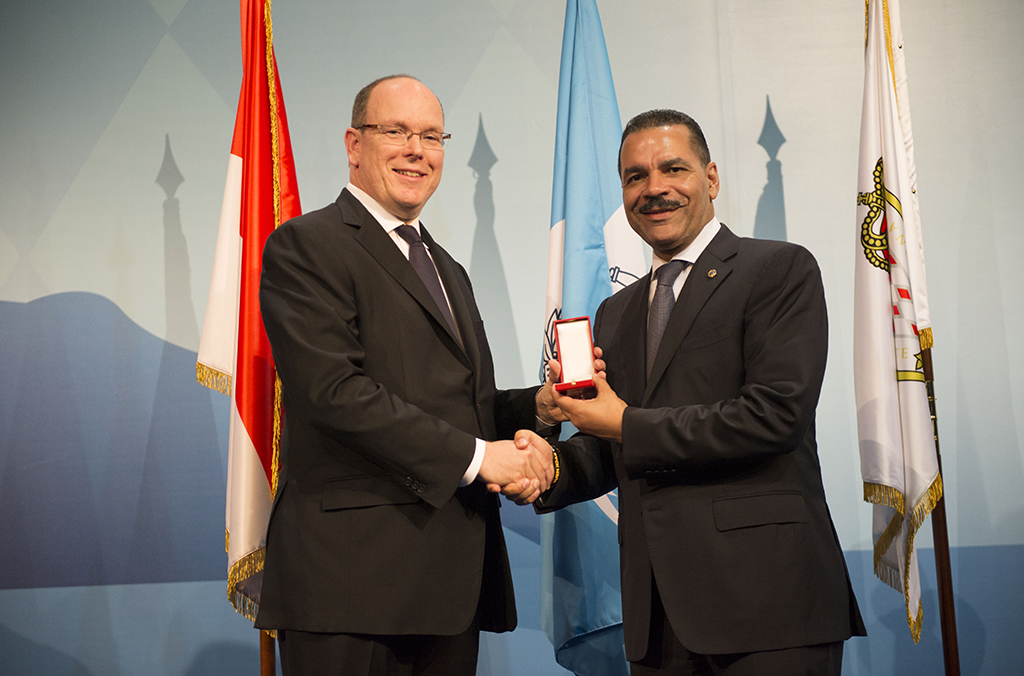
H.S.H. Prince Albert II (left) with Secretary General Ronald K. Noble.
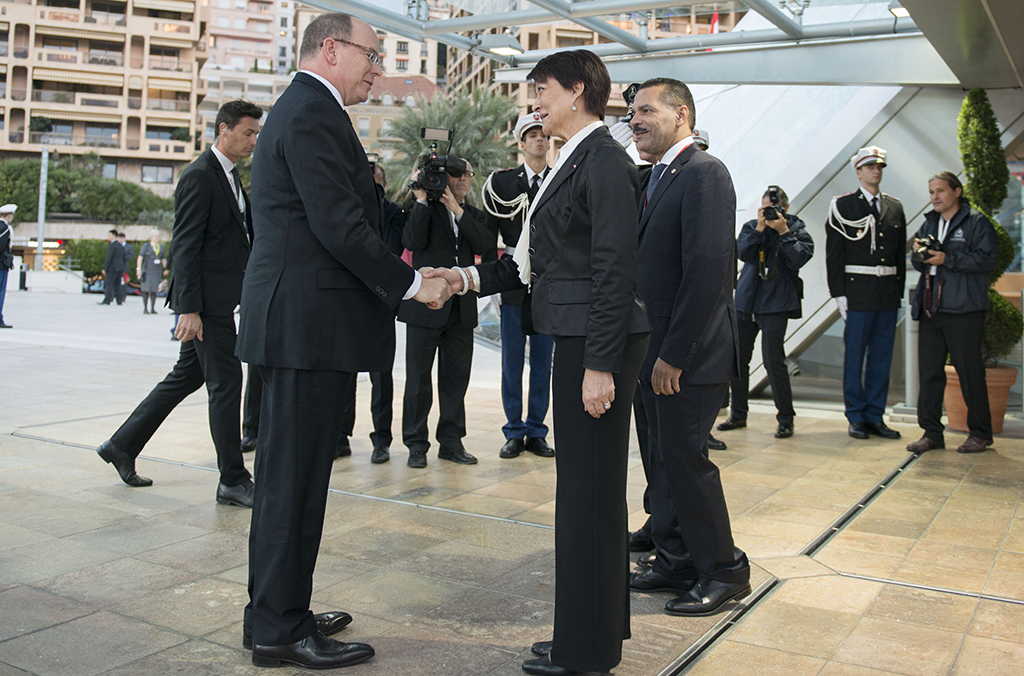
H.S.H. Prince Albert II of Monaco is welcomed to the Assembly by INTERPOL President Mireille Ballestrazzi and Secretary General Ronald K. Noble.
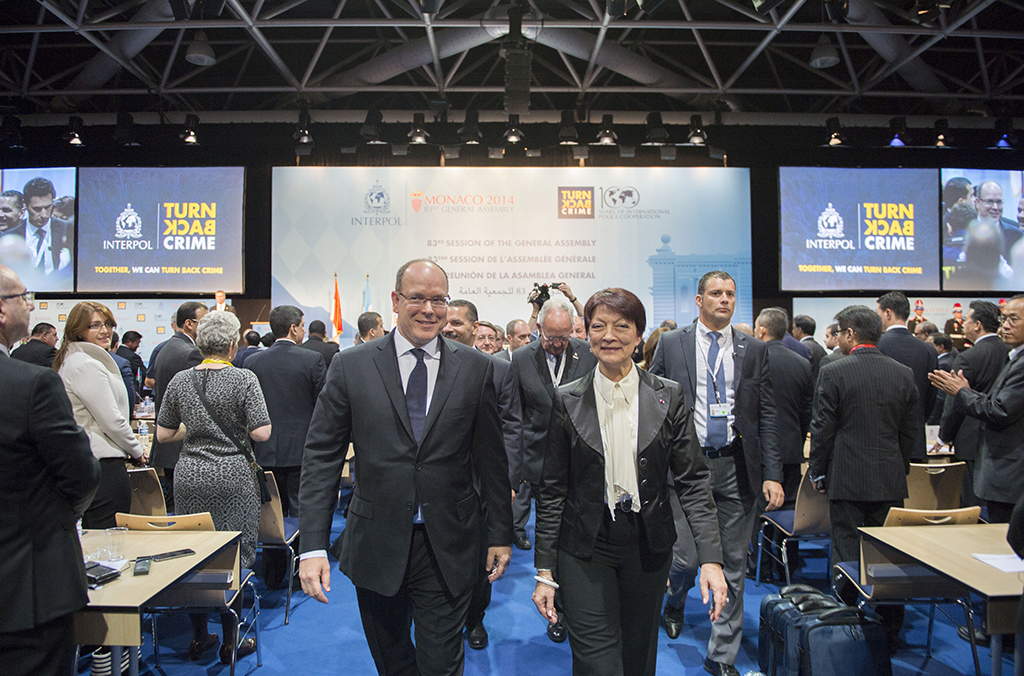
The theme for the General Assembly this year is Turn Back Crime: 100 years of international police cooperation.
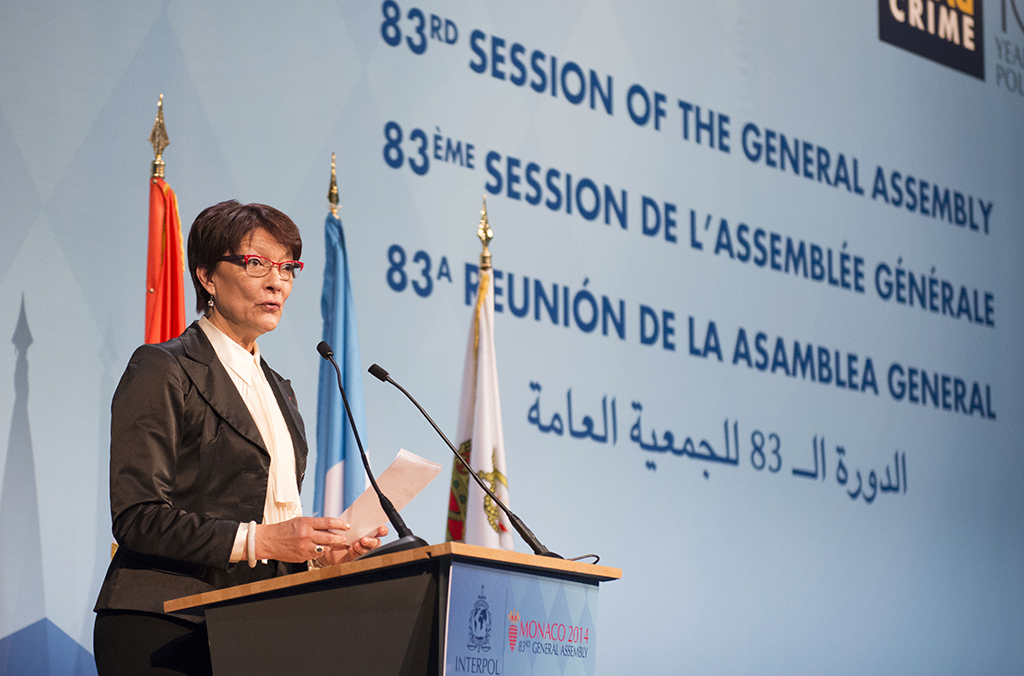
“The terrorist threat has never been stronger, while cybercrime is spreading throughout the virtual world. Our environment and health are also threatened by traffickers seeking to profit,” INTERPOL President Mireille Ballestrazzi told delegates.
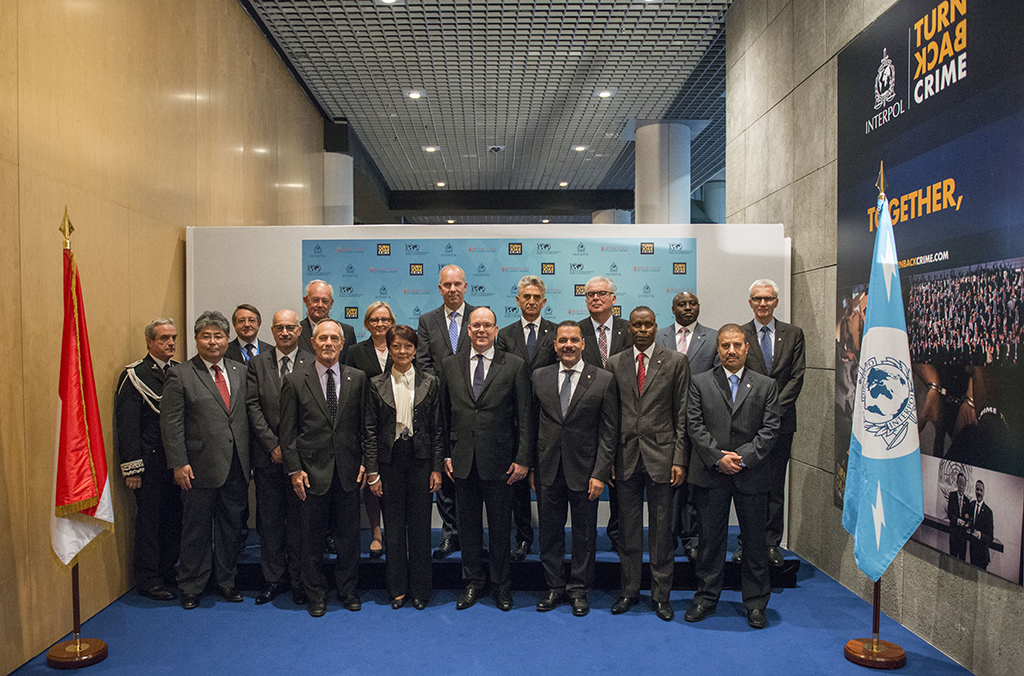
INTERPOL’s Executive Committee members with H.S.H. Prince Albert II of Monaco.
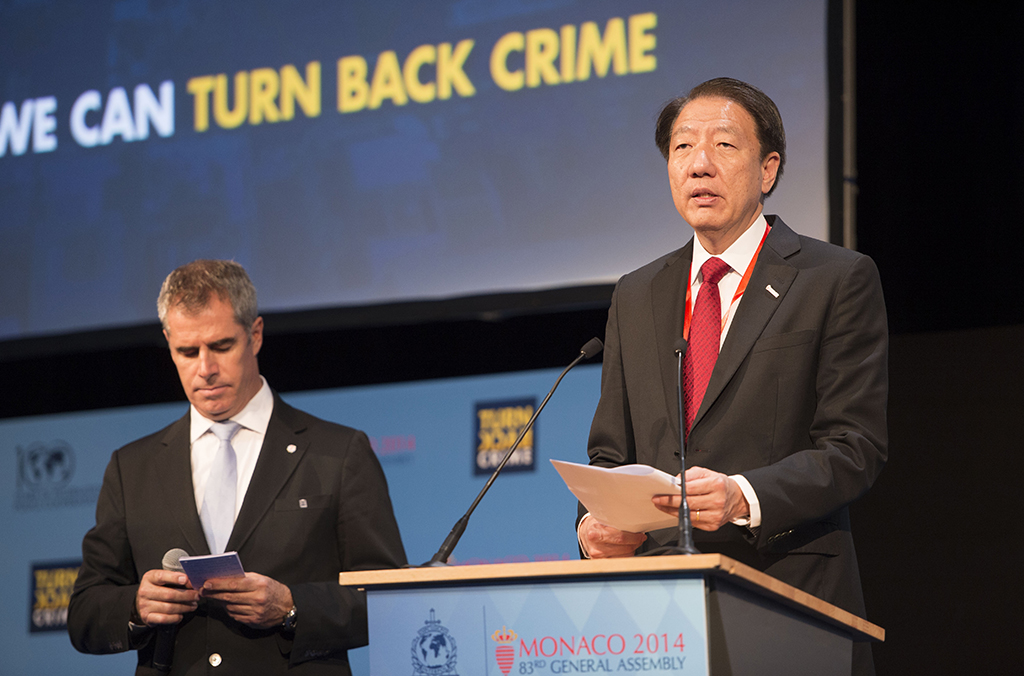
Guest speaker H.E. Chee Hean Teo, the Deputy Prime Minister of Singapore, addresses the opening ceremony of the 83rd General Assembly.
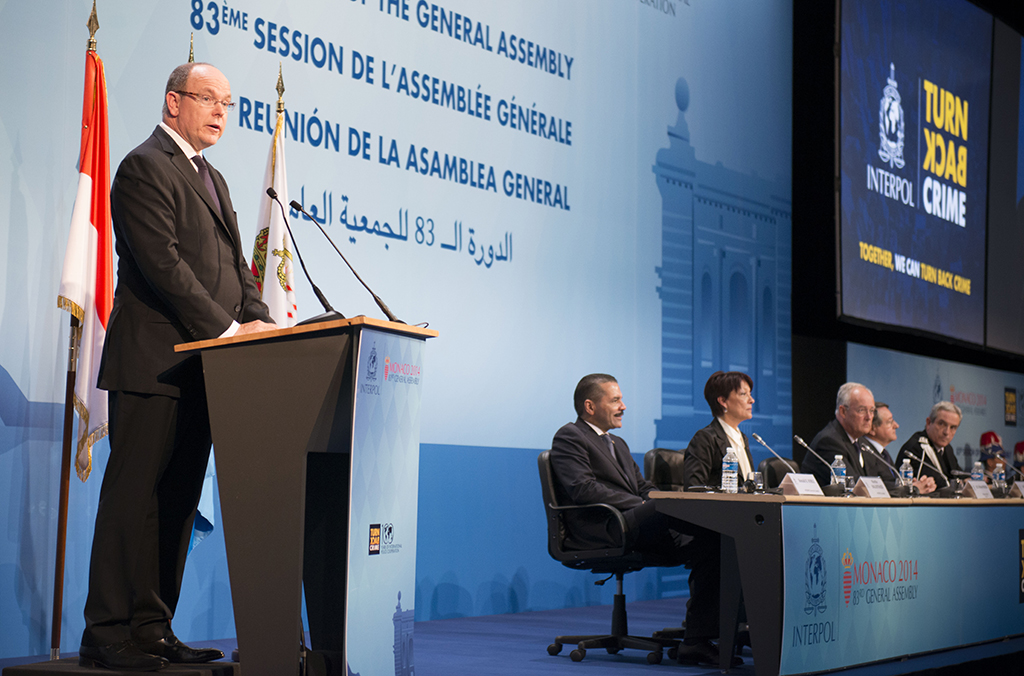
Opening the conference, HSH Prince Albert II of Monaco said the evolution of crime and criminal organizations since his great-grandfather Prince Albert I hosted the first Congress in 1914 means INTERPOL’s role in coordinating the world’s police has become more important than ever before.
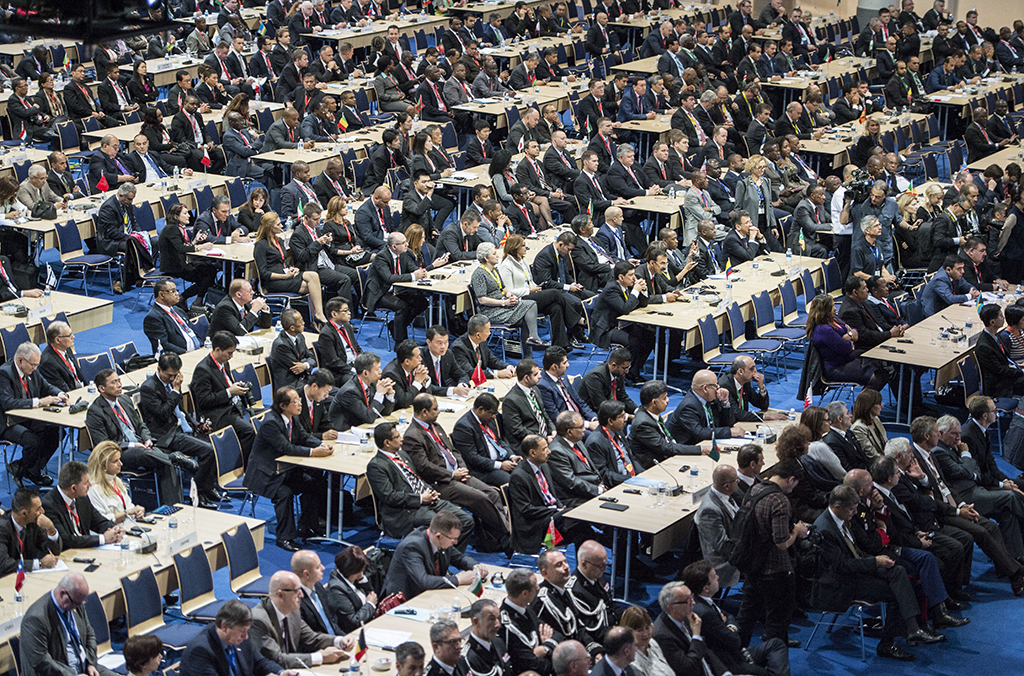
More than 1,000 delegates from 166 countries are attending the General Assembly to discuss strengthening law enforcement institutions, and increasing collaboration with the public and private sectors.
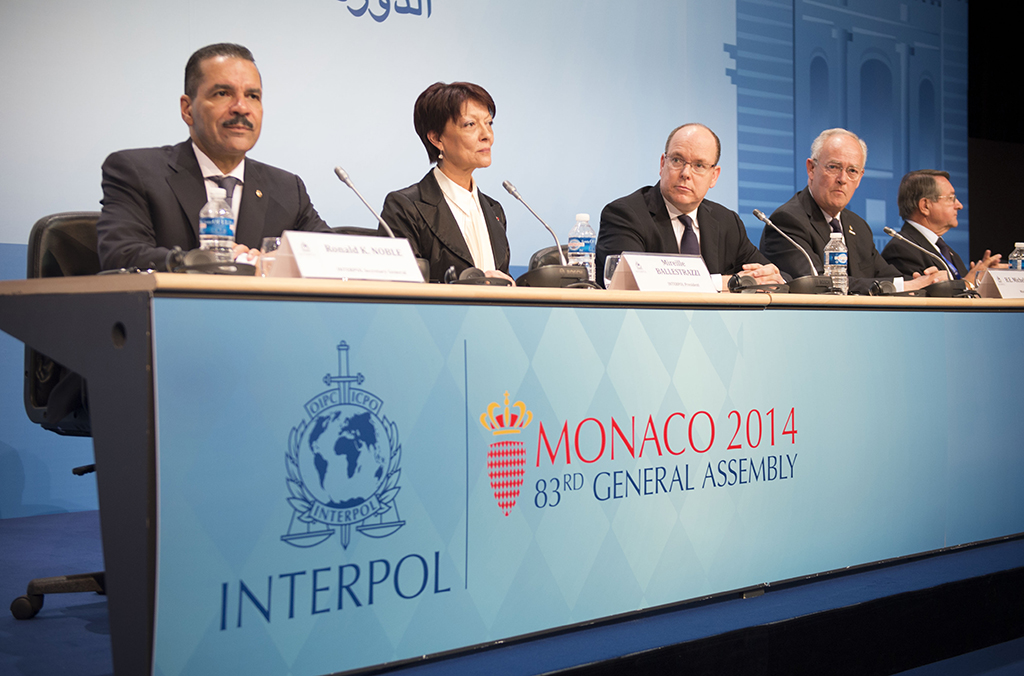
Crime and terrorism continue to pose a significant threat to society, underlining the need to keep strengthening police institutions and share policies, practices and procedures.

“Today we have the pleasure of reuniting to continue the visionary initiative launched in 1914 and to reflect on the results of 100 years of international police cooperation,” said Regis Asso, Monaco’s Director of Public Security.
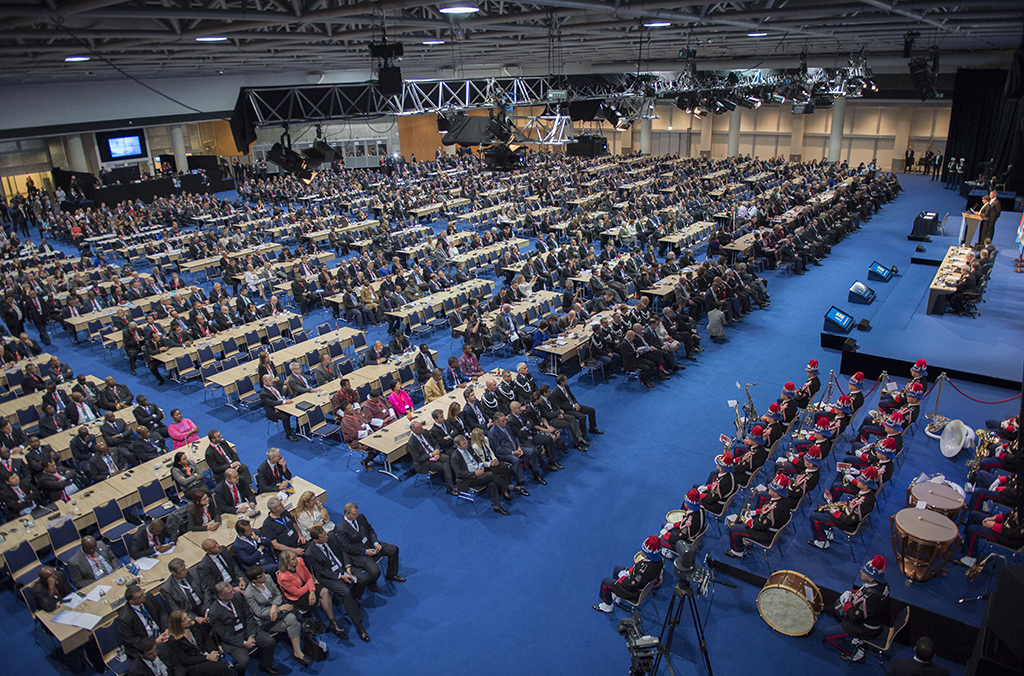
Ministers for Justice, Home Affairs and Security from more than 100 countries attended a Ministerial meeting at INTERPOL’s General Assembly.
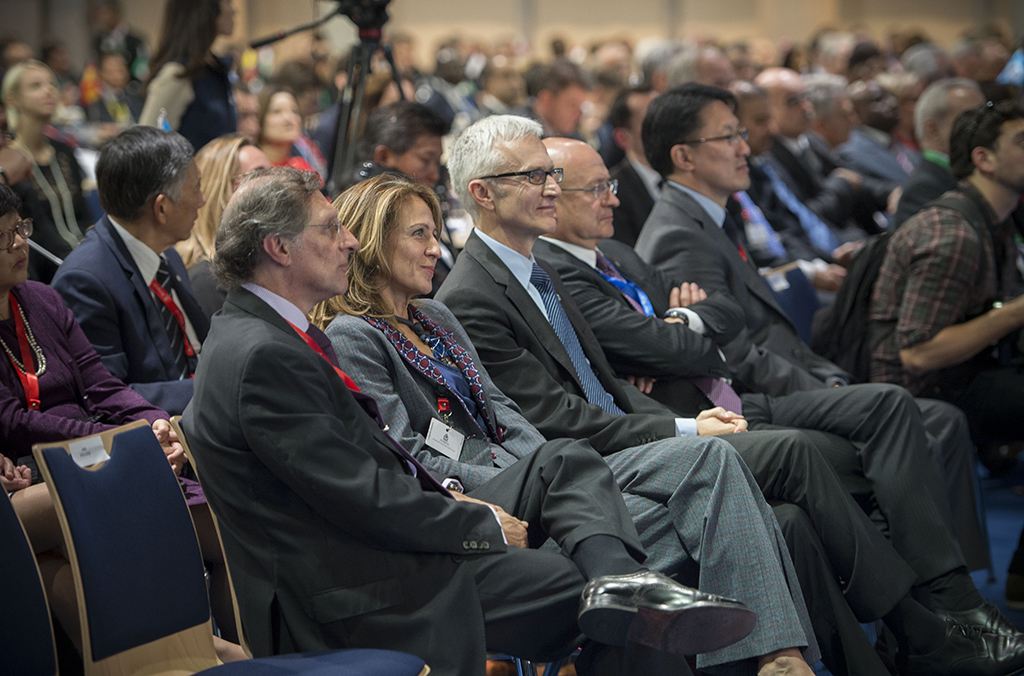
Argentine Ambassador H.E. Eugenio Maria Curia, moderator of the Ministerial Meeting (left) with INTERPOL’s Director of Cabinet Roraima Andriani and Jürgen Stock, candidate to be the next INTERPOL Secretary General, and INTERPOL directors Jean-Michel Louboutin and Noboru Nakatani.

The five-day General Assembly will see delegates address ways to tackle the crime threats of the future and continue to strengthen police cooperation.

Deputy Prime Minister of Singapore, H.E. Chee Hean Teo, presents INTERPOL Secretary General Ronald K. Noble with a photo of the new INTERPOL Global Complex for Innovation in Singapore.
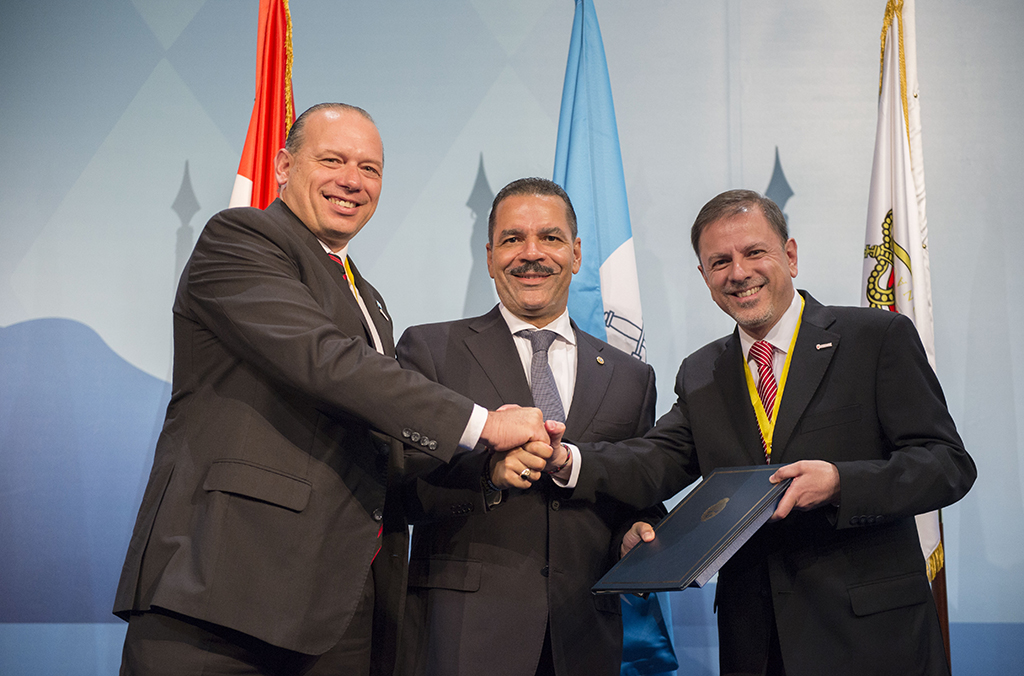
INTERPOL signed a Headquarters Agreement with Argentina, which hosts an INTERPOL Regional Bureau.

INTERPOL signed a Cooperation Agreement with the United Nations Department for Safety and Security (left) regarding access to databases on stolen passports and vehicles.

Elias Murr (centre) and members of the board of the INTERPOL Foundation for a Safer World.
The Ministerial meeting, which marks the beginning of the five-day (3 – 7 November) 83rd INTERPOL General Assembly in Monaco with the theme ‘Turn Back Crime: 100 years of international police cooperation’, serves as a forum for more than 1,000 delegates from 166 countries to discuss key issues including building strong law enforcement institutions, and increasing collaboration between police and the public and private sectors.
The ministers will review the history of global police cooperation and how law enforcement has evolved throughout the past 100 years to collectively combat transnational organized crime. Critical questions for the future of international policing will also be addressed, including how countries can best prepare for contemporary crime challenges by expanding partnerships beyond the law enforcement realm.
Opening the conference, HSH Prince Albert II of Monaco said the evolution of crime and criminal organizations since his great-great-grandfather Prince Albert I brought together police and judicial leaders for the first International Criminal Police Congress in 1914 means INTERPOL’s role in coordinating the world’s police has become more important than ever before.
“The growth in economic trade and the free movement of people requires a strong reaction from the police, extending beyond the borders of states, so as not to be surpassed by the actions of malicious individuals who exploit the advantages of our globalized world,” said Prince Albert.
“Today, INTERPOL is the most effective structure for fighting transnational organized crime. Your exchanges and discussions will permit you to assess the measures carried out during the past years, notably for improving the capacity of police to adapt their methods to new types of crimes connected to advances in technology,” he concluded.
INTERPOL President Mireille Ballestrazzi said this historical gathering underlines the vision of the global leaders who created INTERPOL out of the first International Criminal Police Congress in bringing the world’s police together as a unified force against the ever-changing criminal threat.
“The terrorist threat has never been stronger, while cybercrime is spreading throughout the virtual world. Our environment, the health of our populations are also threatened by greedy traffickers seeking to profit.
“Faced with these new threats, law enforcement agencies have mobilized. They have become better organized, better equipped, better trained, more professional. In short, they have adapted, making the best use of technical and scientific advances such as centralized files, exploitation of evidence, communication systems, monitoring devices, protective equipment,” concluded Ms Ballestrazzi.
The Ministerial gathering heard that, despite the progress made, crime and terrorism continue to pose a significant threat to society, underlining the need for continued efforts to build and strengthen police institutions and share policies, practices and procedures to ensure efficient law enforcement cooperation.
“The world has changed and police have adapted to new forms of crime which threaten the security of our society,” said Régis Asso, Monaco’s Director of Public Security.
“Today we have the pleasure of reuniting to continue the visionary initiative launched in 1914 and reflect on the results of one hundred years of international police cooperation for a safer world,” added Mr Asso.
A joint Ministerial declaration will be issued at the conclusion of the meeting to encourage all member countries to take the necessary steps to strengthen international police cooperation against all forms of transnational crime, with an emphasis on terrorism. In particular, the declaration will call on countries to develop new police technologies, eliminate legal barriers and generate strategies to support the global law enforcement community’s efforts to fight crime.




